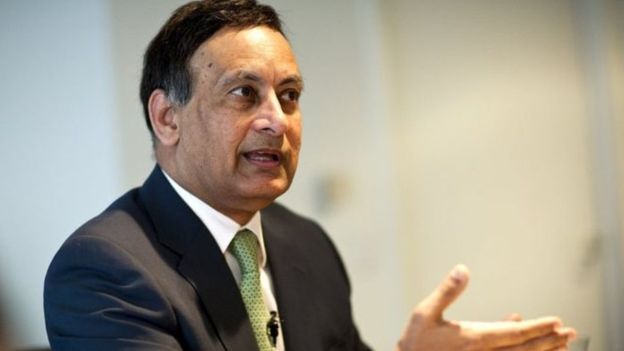Pakistan has repeatedly altered the status of the parts of Kashmir it controls, weakening its current protestations.
Hussain Haqqani
For decades, Pakistan has sought to internationalise the problem of Kashmir, hoping that it could change the territorial status quo over the erstwhile princely state. India’s decision to repeal Article 370 of its Constitution, ending the special status of Kashmir territory under its administration and dividing it into two Union territories, has had the opposite effect. It makes Kashmir an internal issue for India as well as Pakistan.
The Kashmiri leadership now has three choices: it could take the matter to the Indian Supreme Court and argue that the decision violates Indian constitutional principles; it could mobilise protests that could turn the Kashmir valley into a South Asian West Bank, along with the misery that might bring for the Kashmiri people; or it could try and see how to extract maximum advantage from the new order.
All of these options fall squarely within the framework of India’s constitutional and political system. There seems to be little role for Pakistan, or the international community, in the way forward. India has also not given up claim on all of the former princely state so that it could negotiate a final settlement with Pakistan based on on-ground realities.
If massive protests ensue and India puts them down with a heavy hand, one can expect denunciation of human rights violations. But in today’s world, human rights violations have, regrettably, lost their salience as instigators of international pressure.
Pakistan taken by surprise
When Pakistan’s Prime Minister Imran Khan said ahead of India’s general elections that he saw a better chance of ‘settling’ the Kashmir issue after Prime Minister Narendra Modi’s re-election, this is not what he had in mind. Pakistani euphoria over US President Donald Trump’s offer to mediate over Kashmir too had raised Pakistani expectations that they would gain something, not lose standing on the issue altogether.
Khan and his Pakistan military mentors were clearly taken by surprise by India’s move. As if in pique, Pakistan has now downgraded diplomatic relations with India and suspended the meagre bilateral trade in protest. But that is just a weak response to domestic critics, led by former Prime Minister Nawaz Sharif’s daughter, Maryam Nawaz, who have started allegingthat Imran Khan (and the army leadership that backs him) might have ‘sold Kashmir out.’
Public opinion in Pakistan has been fed on Kashmir-related rhetoric for 70 years. But other than political noise at home, funding protests in Kashmir, and raising the spectre of nuclear war, Pakistan has few options.
Since 1989, Pakistan has tried using terrorism as leverage to force India’s hand but that has not worked either. Right now, Pakistan might not want to attract blacklisting by the UN’s Financial Action Task Force (FATF), which would be unavoidable if it tries to step up terrorist attacks.
Pakistan doesn’t have a strong case
Ideally, the people of the former princely state of Jammu and Kashmir should be able to live in peace with full human rights and economic opportunities on both sides of the Line of Control. That is unlikely as long as the issue is framed as an India-Pakistan conflict rather than as a matter relating to the lives of Kashmiris.
In any case, Pakistan has also repeatedly altered the status of the parts of Kashmir it controls, weakening its current protestations. In April 1949, Pakistan took over Gilgit-Baltistan (then called the ‘Northern Areas’) through an agreement with the government of Azad Kashmir and the political party, All Jammu and Kashmir Muslim Conference.
In 1969, a Northern Areas Advisory Council (NAAC) was created, followed by the Northern Areas Legislative Council (NALC) in 1994. Pakistan’s Ministry of Kashmir Affairs and Northern Areas retained all law-making powers until the 2009 Gilgit-Baltistan Empowerment and Self-Governance Order, which created an elected legislature and the office of chief minister.
Pakistan’s stance that the status of the princely state of Jammu and Kashmir was yet to be settled also did not come in the way of the 1963 Pakistan-China boundary agreement that resulted in China ceding some territory to Pakistan and Pakistan recognising Chinese sovereignty over hundreds of square kilometres of land in Northern Kashmir and Ladakh.
Pakistan needs to shed inflexibility
India’s latest moves might require a change in Pakistan’s inflexible position that Kashmir is the unfinished business of Partition. That view, notwithstanding its legal merits and the strong sense of injustice among Pakistanis that stems from it, has fewer takers internationally than ever.
In 1948, when India originally took the issue of Jammu and Kashmir to the United Nations complaining about armed Pakistani raiders, a majority of the UN’s 58 members shared Pakistan’s view that princely Kashmir’s accession to India needed review.
The UN Security Council passed a resolution calling for a plebiscite to give the people of Jammu and Kashmir self-determination, which was not implemented by both Pakistan and India. But the last UN Security Council resolution about plebiscite in Kashmir was in 1957, when the total UN membership was 82.
Now, with 193 members, the United Nations shows little interest in the issue. Pakistan’s leaders still refuse to recognise that the territorial status quo and a better life for Kashmiris might be all they can hope for. They prefer to keep Kashmir alive as a problem that is neither solved nor set aside.
Pakistan’s desire for an international solution to Kashmir seems farther from the realm of possibility than ever. In the aftermath of the recent Indian decision, the US noted that India considers it an internal matter.
Sri Lanka, Bangladesh, and the Maldives – all members of the South Asian Association for Regional Cooperation (SAARC) – acknowledged the internal nature of the constitutional changes. Among member states of the Organisation of Islamic Cooperation (OIC), United Arab Emirates (UAE) took the lead in expressing the hope that the changes would improve the lives of Kashmiris.
Imran Khan’s call to Turkey’s President Recep Tayyip Erdogan elicited a promise of “steadfast support” without condemnation of India. A similar call for support to Malaysia’s Prime Minister Tun Mahathir bin Mohamad resulted only in a lukewarm expression of concern.
Even China’s criticism focused more on its territorial dispute with India over Ladakh than on Pakistan’s stance although the Chinese statement did refer to the dispute as “an issue left from the past between India and Pakistan.”
International relations are seldom about legalistic and moral arguments of the kind Pakistanis offer about the invalidity of then Maharaja Hari Singh’s accession and subsequent UN resolutions on Kashmir. Countries care more about their interests and Pakistan offers less and less in terms of value in relations to others.
China’s annual trade with India amounts to $95 billion compared to $13 billion with Pakistan. Turkey’s trade with India stands at $8.6 billion against $1 billion with Pakistan. Malaysia-India trade at $14 billion is 14 times more than the $1 billion of goods and services Malaysia exchanges with Pakistan.
It is time for Pakistan to take these harsh realities into account instead of just emotional and religion-based appeals to settle what could not be settled in 1947.
Husain Haqqani, director for South and Central Asia at the Hudson Institute in Washington D.C., was Pakistan’s ambassador to the United States from 2008-11. His books include ‘Pakistan Between Mosque and Military,’ ‘India v Pakistan: Why Can’t we be Friends’ and ‘Reimagining Pakistan.’ Views are personal.
























